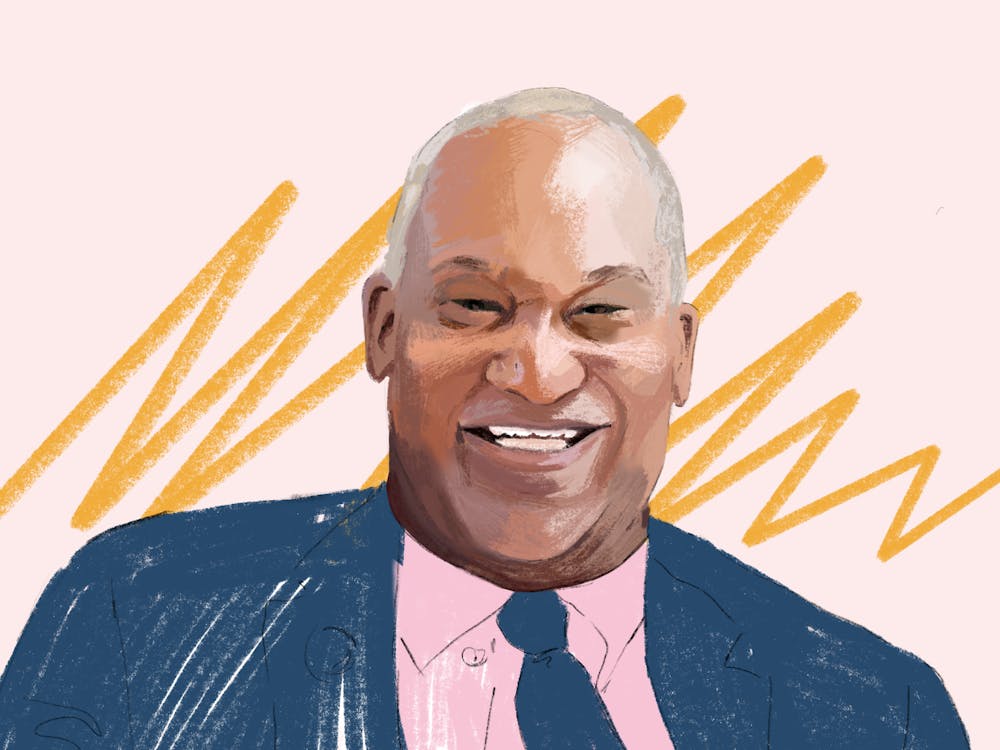Google “Professor Herman Beavers,” and you'll easily see all of the different roles Dr. Beavers plays at Penn: professor of English, Africana Studies, and Theatre Arts, faculty director of Civic House and the Civic Scholars Program, mentor, writer, and community leader, to name a few. Dr. Beavers specializes in American and African–American literature, poetry, jazz, and the study of writers such as August Wilson and Toni Morrison. He is a lifelong lover of literature and a thirty–one year faculty member at Penn. Street sat down with him in late July to discuss his upcoming course, “African–American Short Story in the 21st Century,” his experience teaching African–American literature at Penn, and where we can and should go from the moment of “anti–racism.”
This interview has been edited and condensed for clarity.
Can you tell me a little bit about your class “African–American Short Story in the 21st Century”?
The course is on the African–American short story, so it is grounded in African–American oral storytelling and culture. We start by thinking about African–American storytellers, some of whom might have been illiterate, but were nonetheless storytellers on the order of Homer. We move from there to some of the first short stories published by African–American authors. We read Frederick Douglass' novella, “The Heroic Slave.'' We read a collection of stories called “The Conjure Woman” by a writer named Charles Chesnutt who lived in Wilmington, N.C. at a time of a really terrible race riot. Then we move into the 20th century. In this moment, it will be interesting to look at short stories that deal with anti–Black racism. That's not the sole focus of the class, but you can't help but focus on that when there are stories that involve racial violence.
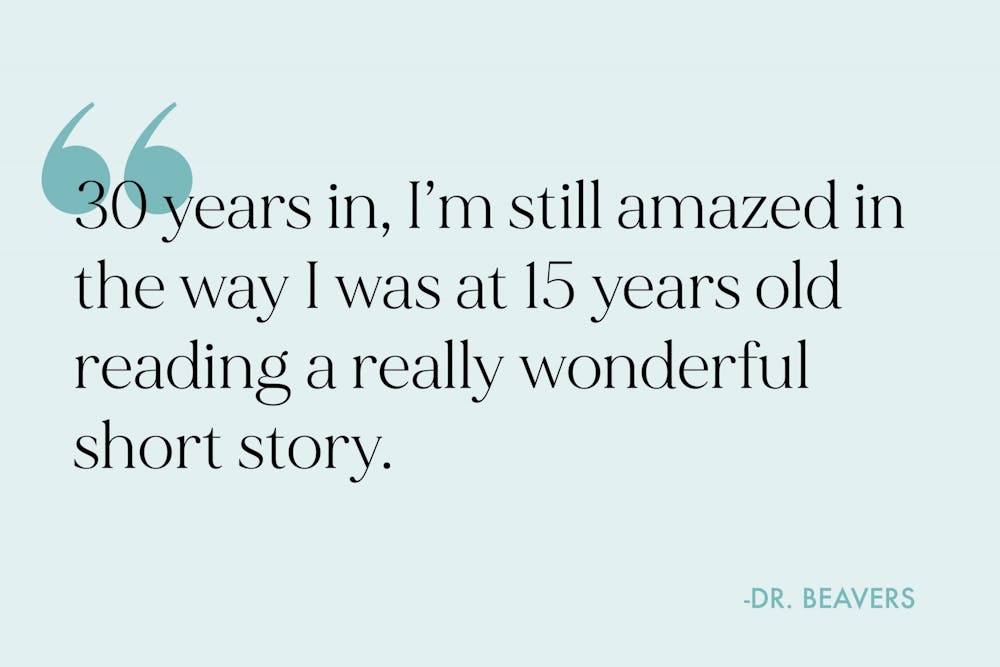
Something that has come up recently in conversations about race and literature is the books that are taught about African–American literature and history in school. I read To Kill a Mockingbird in school, for example, along with a very certain set of books that are taught about the Black experience, maybe not necessarily written by Black writers. I think that's what a lot of students come to Penn with in terms of their exposure to literature about Black people. Do you have thoughts on those books?
I deeply admire To Kill a Mockingbird. I think it's a wonderful book. But To Kill a Mockingbird is like the films in Hollywood that try to engage the question of race, and the film winds up being about how hard it is for the white person in the film to confront racism. That, to me, is a stupid premise and is insulting.
In this course, I am not interested in the least in studying how hard racism is for white people, because it is not hard for white people. You might be upset about it. You might be angry about it. You might feel like, how can I be an ally? All of that is ridiculous to me because racism is something that white people started. White supremacy is something that white people invented. As far as I'm concerned, this class is about how Black people have tried to negotiate and navigate their way through a racist country that absolutely hated them and did not consider them to be human beings. Now, a lot of the people that we're going to read about are absolutely certain and confirmed in their own humanity, it may just not be acknowledged by somebody else.
If you're going to be defensive reading about racism, you should not take my class, because this is not about you. I have been teaching at Penn for 30 years. The first class I taught was “African–American Short Story,” and I can tell you exactly what happened on the first day. I'm talking about the African–American oral tradition and a white student raised his hand and he said, “I thought this was an American literature course.” And I said, “Well it is. We just happen to be reading African–American writers.” At that moment, twenty white students got up and walked out of the class. I am not making this up.
Now, do I think that they're racist? Possibly. But what I think is probably more of the case is that they didn't think the course was about them, so they walked out. They were taught—as many generations of students have been taught—that literature that is universal must be about white people. This is really the challenge.
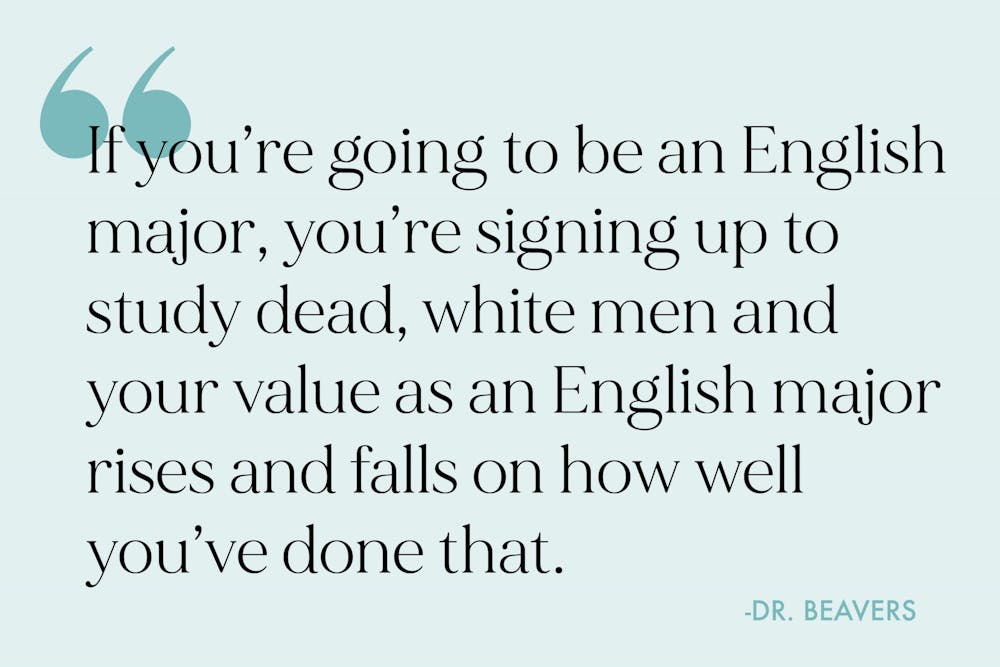
Do you think that in the English department, and the University more widely, African–American literature is ingrained enough into the general curriculum?
I think the role that African–American literature plays in English departments—and I won't single out our English department because I don't think that we're unique in this—is that it's a departure from the norm. It's something that maybe you should read if you want to be a fully educated person, but it's not necessary. And that has to change. To me, you're not an educated person if you haven't read James Baldwin or W.E.B. Dubois. Now somebody might say to me, “You're not an educated person if you haven't read Plato,” and all I'm saying is I reserve the right to say the same thing. If you have not heard of James Alan McPherson or Toni Cade Bambara, it's because you weren't taught literature well—not because they're not important writers.
If you're going to be an English major, you're signing up to study dead white men and your value as an English major rises and falls on how well you've done that. What we've been saying for a long time in our English department at Penn is that you have to read more than that. You can't graduate with an English major from Penn without reading other writers who are not white. But, are those writers valued in the same way? Probably not. That’s what has to change.
I taught a course on Toni Morrison last spring and I told my students, "It doesn't matter if you're Back or white—Toni Morrison belongs to you. Toni Morrison belongs to you as somebody that's an American citizen who has written about the American experience." Now for various reasons, white people don't often think that. They think that African–American literature is either only for or about Black people. It's parochial in ways that literature about white people is universal. That fundamental schism makes it difficult to teach African–American literature at Penn.
Reading literature can put you in touch with what it means to be human. The fact that the protagonist of the story happens to be Black should not be a barrier to you understanding that. If my graduate school professors expected me to understand what it means to be human by reading Ernest Hemingway, or William Faulkner, or Edith Wharton, or Henry James without seeing a single character who was Black in their work, I expect the same thing from the students that take my class. The stories that we're going to read in my class can be as life–changing as reading Herman Melville's Moby Dick.
It's definitely tough treading the line between giving non–Black students the opportunity to learn and allowing people to think they’ve checked an “anti–racism box” by taking your class.
I don't want to discourage people who are genuinely curious. But, once your curiosity is satisfied, what then? I've been talking about systemic racism for such a long time. It seems to me extremely perverse that it took watching a Black man suffocated on television for people to get interested in African–American literature. The real challenge for people that want to stand with Black people, which I welcome, is that you’ve got to be in it for the long haul.
I'm not going to be standing up and teaching, saying, “I'm amazed that Black people have done this.” I want to spend time talking about, “Why is this a great sentence? Why did the writer end the story in this fashion?” 30 years in, I'm still amazed in the way I was at 15 years old, reading a really wonderful short story. I'm in awe of good writing, no matter who it's by. I'm in awe of William Faulkner—I just don't put him over Toni Morrison or Ernest Gaines. If you're a lover of literature and you just happen to have never read African–American literature before, you will be welcome in my class.
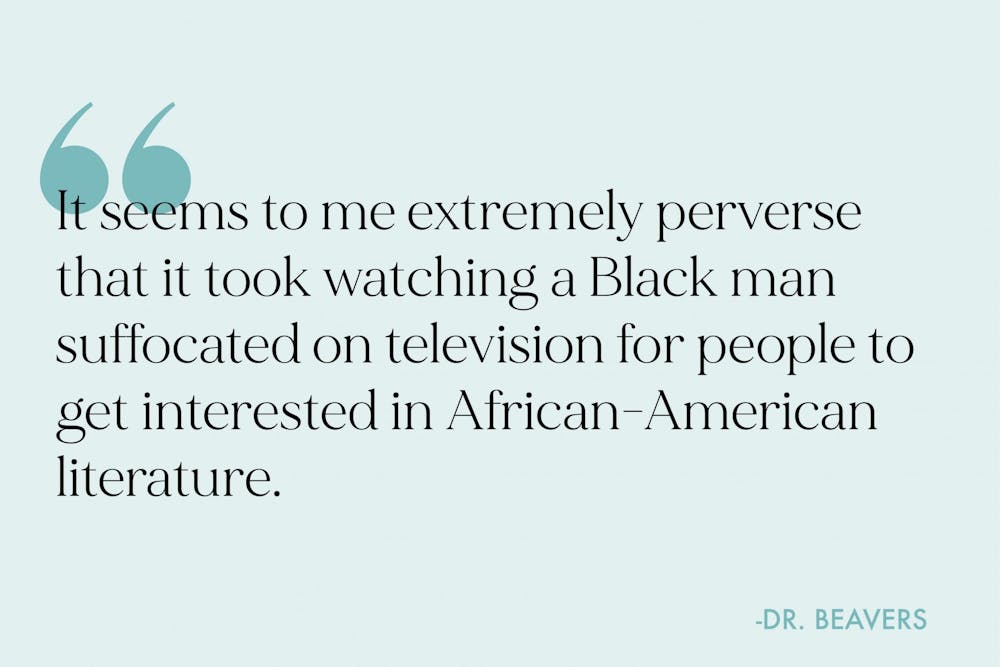
We start where we start, and I take people where they are. Even for Black students taking an African–American literature class, their experience with Black people may be really limited if they've grown up in the suburbs or went to private school or had parents that gave them a tremendous amount of privilege. The number of the kinds of Black people they dealt with may be extremely narrow and the people that they're reading in my class may be like no one they've ever met. That's why I say you have to take people where they are. I don't assume—and white students shouldn't assume—that Black students come in and we know the secret code and the secret handshake.
I grew up in the Midwest in a working–class family which means that my parents are from the South, and that means particular things in my family. If I value my own experience without some level of empathy for a person that has had a different experience, I'm not doing my job as a teacher. What I want is to create a situation where we can talk to one another, and if I make people afraid to talk because they don't know something, it's going to be a very short conversation. We have to develop a level of trust in the class, so people can talk about what they think and what they know and don't know. That includes me because there's a bunch of stuff that I don't know.
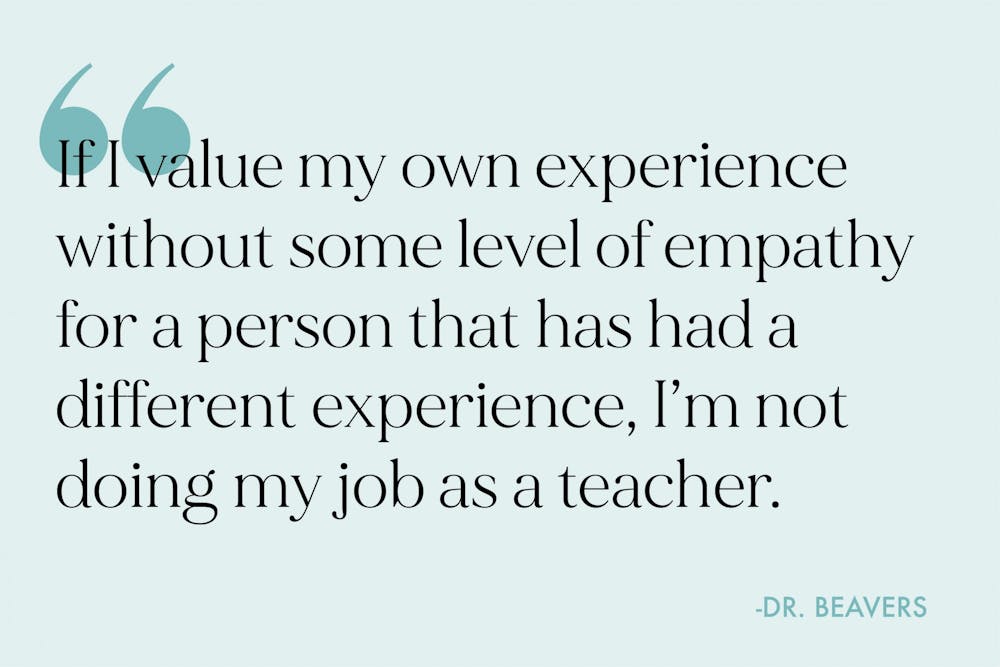
Do you see a scenario in which this present moment is a catalyst for changing some of these issues?
If ten years from now, we're still having the same conversation, or people are still engaged in wanting to read African–American writers, we will know that this was an inflection point. But I think people will be back to doing what they were doing at this time next year. Clearly what I just said is pessimistic, and I would love to be proven wrong.
I think we are in a moment where we have a tremendous opportunity and if we take that seriously, something good will come out. This is a marvelous time and this is your generation’s time to lead. You get to make decisions and take us places that your parents or your grandparents or your great grandparents, for whatever reason, opted not to take us. That, to me, is a powerful thing. That, to me, is a great reason to be in the classroom, the idea that I'm training the next generation of leaders.
